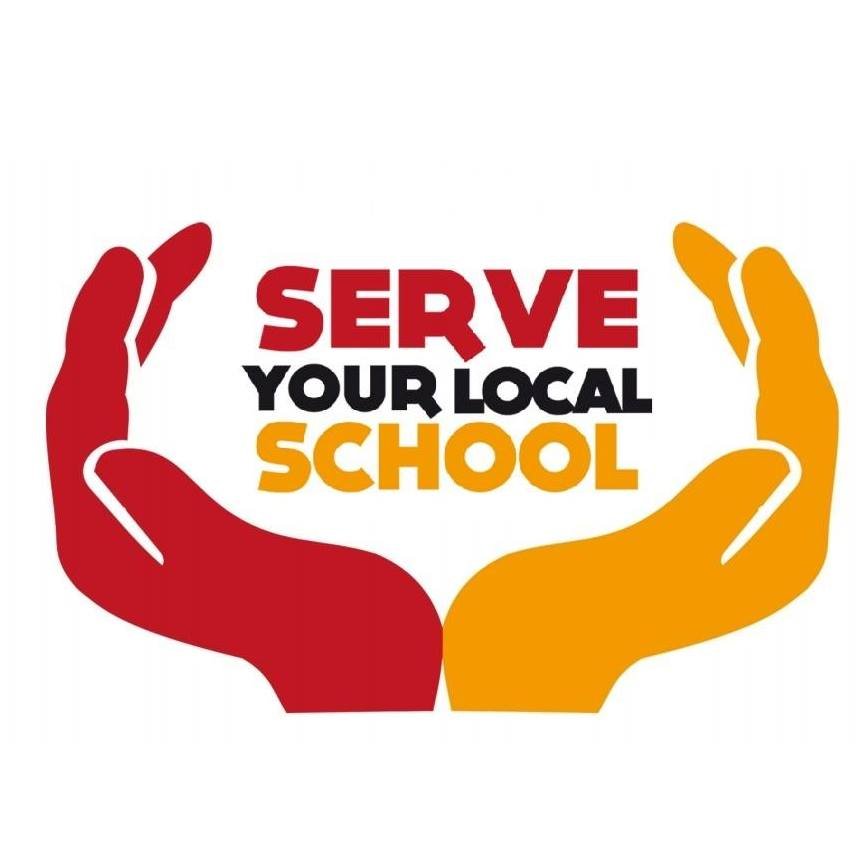Get Started
Are you new to school’s work or just unsure of where to begin? We talk you through why and how to approach a school, give you guidance on the do’s and don’ts of schools work and suggest using our “Church Audit Tool” to help your church identify its gifts. We also introduce you to the topics of child protection and the Curriculum for Excellence.
We’re encouraging people to go into schools to be a blessing, not to evangelise. This is because we think it’s really important that the church is a body that serves those who are not in it; being salt and light, if you will! Churches and Christians have a legitimate role to play by learning together, linking with, and loving the school community.
We call it serving, schools call it partnership
One of the key features of the Curriculum for Excellence is partnership working. Partnerships facilitate the resourcing of schools and help a school to be embedded in the community.
“Community partners can make significant contributions across all aspects of Curriculum for Excellence. Overall, we find most learning communities are active and vibrant, with community and voluntary groups making important contributions to community life.”
Learning in Scotland’s communities
One of the key features of the Curriculum for Excellence is partnership working. Partnerships facilitate the resourcing of schools and help a school to be embedded in the community.
“Community partners can make significant contributions across all aspects of Curriculum for Excellence. Overall, we find most learning communities are active and vibrant, with community and voluntary groups making important contributions to community life.”
Learning in Scotland’s communities
It is a misunderstanding to say that churches are barred from playing a role in schools, or that they can only do so if they also cover the beliefs of the other main religions. Of course, Christians must behave appropriately in schools (see the do’s and don’ts of schools work below), but there are plenty of opportunities for churches to serve/partner their local school.
Education Scotland's ‘Experiences and outcomes’ for RME document highlights... How might your church help your local school to deliver some of these?
We hope that our ideas pages – Simple, Medium and Grand – will help you find a way to partner and serve your local school.
How to approach a school
It can feel intimidating to try and build a link with a school when the church has little previous connection. Here is a guide to some of pathways you can explore.
It can feel intimidating to try and build a link with a school when the church has little previous connection. Here is a guide to some of pathways you can explore.
Be mindful that when you approach a school you are representing your church; so ensure that you are acting with the knowledge and support of your church leadership before you do so.
Through the Head Teacher
It is crucial to recognise that the Head Teacher is the guardian of the school. No-one has the "right" to be part of the life of a school; access is only given through the invitation and permission of the Head Teacher.
Head Teachers are busy people with many demands on them and little spare time. You need to accommodate this, and be patient. Start by writing a formal letter to the Head Teacher, introducing yourself, your church, and outlining briefly what you would like to offer the school (here is a sample letter you could adapt). Follow up with a phone call to make an appointment to meet them, and discuss further your church’s involvement with the school. Don’t leave it too long to follow up!
When you meet, don’t expect more than 20 minutes of their time. Christians are used to church meetings lasting an hour or more, but there is no space in the day for most Head Teachers to spare this sort of time. Don’t be offended, but serve them by being brief.
Building trust and relationship takes time. Don’t expect to go to your first meeting and be enthusistically asked to do everything. The Head Teacher needs to get to know you and for trust to be built. Offer to start with the little things (see ‘Simple Ideas,’ for suggestions) and be reliable.
Through other Staff
There may be church members (or other local Christians) who work in the school as teachers, secretaries, or learning support assistants. It’s worth chatting to these people about your ideas. They can advise on what would genuinely be of service to the school. If they like your ideas they may also be willing to introduce you to the Head Teacher.
Supporting Health and Wellbeing
Sometimes, life can present us all with challenges and we need a helping to get back on track. We’ve put together this list of specialist support and it’s hoped that it will be a useful and practical resource for those working with children and young people.
Sometimes, life can present us all with challenges and we need a helping to get back on track. We’ve put together this list of specialist support and it’s hoped that it will be a useful and practical resource for those working with children and young people ensuring there is the same focus on mental health & wellbeing as there is with other curricular areas.
Samaritans
24 Hour confidential support if you are feeling suicidal, self-harming or having a difficult time or supporting someone else.
Call 116 123
jo@samaritans.org
www.samaritans.org
Samaritans self-help app
NHS24
NHS call centre offering health advice - Call 111
Emergency
In the event of an emergency, always call 999 for an ambulance - Call 999
Youth Health Service
Confidential service which can support young people 12-19 in matters including sexual health, substance misuse, anxiety, relationships, risk-taking, weight management, sleep disturbance, gaming and gambling.
Glasgow: Call 0141 451 2727 www.nhsggc.org.uk
Childline
You can phone, instant message, email or Ask Sam if you have concerns or need advice on anything from bullying, your family, relationships, school or your feelings.
Call 0800 11 11
www.childline.org
Breathing Space
Sometimes thoughts and feelings can be overwhelming. Breathing Space offers the opportunity to open up when you are feeling low.
Call 0800 83 85 87
www.breathingspace.scot
Runaway Helpline
If you are thinking about running away, have already run away, want to return, Runaway Helpline can offer advice.
Call 0808 800 7070
Text 116000
www.runawayhelpline.org.uk
LGBT Youth
Support for lesbian, gay, bisexual, transgender young people. Available for advice, support or someone to talk to.
Call 0141 552 7425
info@lgbtyouth.org.uk
Live chat available on website
www.lgbtyouth.org.uk
SHOUT
Struggling to cope? Free support for anyone in crisis 24/7
Text 85258
Think You Know
Advice from CEOP protecting children on and offline with a range of portals to suited to different ages. Includes advice on grooming, sexting and sexual abuse.
SeeMe
Information for young people to support talking about mental health
AyeMind
Information on body image, self-esteem and teenage health
Beat
Specialist support and advice for young people experience eating disorders.
Call 0808 801 0811
www.beateatingdisorders.org.uk
Mindshift
App to help you deal with symptoms of stress and anxiety offering strategies to face it rather than avoiding it. Includes information and relaxation techniques to help you deal with worry, social anxiety, exam stress and pain.
MindShift CBT for iOS devices
MindShift CBT for Android devices
PEAK
Brain training app which is completely free and offers a range of games which can be used as a distraction.
Supportive Apps
This is a collection of apps approved by the Child and Adolescent Mental Health Services (CAMHS), to support your health & wellbeing.
https://www.camhs-resources.co.uk/apps-1
Koooth
Kooth is an online mental wellbeing community with articles, moderated discussion boards and 1:1 live chat to support your mental health & wellbeing.
https://www.kooth.com
Age 11-24
Togetherall
Registered mental health practitioners on hand 24 hours a day to offer advice and support with access to free resources and online courses.
https://togetherall.com/en-gb/
Check out our resource page for a range of resources and programmes aimed at supporting young people’s mental health and emotional wellbeing.
School Chaplains
Every non denominational school has a theoretical link to a local Church of Scotland, and a minister who is ‘School Chaplain'. In reality, this can vary enormously. Some Head Teachers prefer not to have a Chaplain; some ministers feel that working in schools is not their gifting. Chaplaincy can just involve leading an occasional act of RO, or it can become much more developed.
Every non denominational school has a theoretical link to a local Church of Scotland, and a minister who is ‘School Chaplain'. In reality, this can vary enormously. Some Head Teachers prefer not to have a Chaplain; some ministers feel that working in schools is not their gifting. Chaplaincy can just involve leading an occasional act of RO, or it can become much more developed. A team, perhaps from different churches, can provide a chaplain (lay or ordained) for each year group. This team can have an ongoing pastoral role in the lives of the pupils, and take part in lessons and other school activities.
It is always worth discovering if there is a Chaplain, and having a conversation with him or her. There may be current projects that need help. It may be that the Chaplain finds school’s work a duty rather than a joy, and would be delighted to have others alongside them. At the very least it is courteous to inform them that there are other local Christians who are looking to serve and build links. We all follow Christ, striving for unity in our work in spite of any differences is honouring to God and a better witness to the school.
Resources
Draft Chaplaincy Agreement - Click here
Code of Conduct for School Chaplains Example - Click here
A Church Audit
This is a short questionnaire aimed at Churches that are looking to start working in partnership with their local school, or looking to develop the existing links with the school. Although it can be completed by just one person there is great benefit in a small group using it as a discussion document. This will enable you not just to realise the potential within your Church, but also to start to take ideas off paper and into action!
This is a short questionnaire aimed at Churches that are looking to start working in partnership with their local school, or looking to develop the existing links with the school. Although it can be completed by just one person there is great benefit in a small group using it as a discussion document. This will enable you not just to realise the potential within your Church, but also to start to take ideas off paper and into action! Download the Church Audit here.
Child Protection/PVG
Parents need to be confident that when their child goes off to school in the morning, they will be properly cared for in a safe environment. This means that the school needs to check that everyone who volunteers in a school is a suitable person to be in contact with children. Furthermore, volunteers need to know what to do and who to speak to if they have concerns about the well-being of a child in the school.
Keeping Children Safe in School
Parents need to be confident that when their child goes off to school in the morning, they will be properly cared for in a safe environment. This means that the school needs to check that everyone who volunteers in a school is a suitable person to be in contact with children. Furthermore, volunteers need to know what to do and who to speak to if they have concerns about the well-being of a child in the school.
The school’s Child Protection Policy
Every school has a Child Protection Policy which gives guidelines for keeping children safe in school and procedures for ensuring that concerns about children who might be at risk are properly addressed. If you want to volunteer in the school you need to ask to see a copy of the Policy. Any teacher at the school should be able to give you access to this Policy or you can ask the School Secretary. It is strongly advisable that volunteers have Child Protection training which can be accessed either through your denomination or through an organisation such as SU Scotland.
The PVG Scheme
To help schools and other organisations working with children to ensure that unsuitable people don’t have access to children the Scottish Government runs the “Protecting Vulnerable Groups (PVG) Scheme”. Schools, churches and organisations such as SU Scotland can apply to Disclosure Scotland for membership of the PVG scheme for their employees and volunteers. Disclosure Scotland checks the person’s identity and then searches for any criminal record history and other relevant police information. If there are no convictions for serious crimes against children, or any other reasons why a person may be unsuitable for working with children, applicants become members of the PVG Scheme and can then be allowed access to the school. PVG Scheme members are sent a “PVG Scheme Record”, which can be shown to school staff to show that you are a PVG Scheme member.
How do I become a PVG Scheme member?
You will need to check with the Head Teacher whether your PVG scheme application needs to be sent in by the school or local authority, or whether they will accept a Scheme Record obtained through your church or through SU Scotland. Application through the school or local authority may incur a fee of £55; application through the church or SU Scotland is preferable since it is free! To find out how to apply for PVG membership through your church, speak to the church secretary or an elder or your minister.
Once you are a PVG Scheme Member, through whatever organisation, a school or local authority can obtain a “PVG Scheme Update” for you, to show whether any conviction information has been added to your record since your full “PVG Scheme Record” was obtained. If payment is needed, it should be only £19.
For further information you can contact SU Scotland's Volunteers Unit by emailing volunteers@suscotland.org.uk or calling 0141 352 7613.
Do’s and Dont’s of schools work
DO
Be reliable; do what you say you will when you say you will do it.
Be present and consistent; building relationship takes time.
Be flexible: allow the school to shape what you offer on the basis of their need.
DO
Be reliable; do what you say you will when you say you will do it.
Be present and consistent; building relationship takes time.
Be flexible: allow the school to shape what you offer on the basis of their need.
Leave your own agenda at the door!
Be sensitive; the whole school is not Christian, so phrases like ‘We believe…’ can immediately make people feel excluded. Opt for “Christians believe...” or a more personal, “Because I’m a Christian, I believe...”
Come with the attitude of a servant, with gentleness, humility, grace and respect.
Value every individual regardless of religion, belief, sexual orientation, gender, age or even how they treat you! If we believe that Christ loves everyone, we need to treat everyone as precious and valuable.
Prepare everything thoroughly and make everything you do in the school of the most excellent quality.
Get up to speed with currently educational policies and practices to understand the world the people you are looking to serve live in daily. Visit the Education Scotland website.
DON’T
Don’t assume that people understand Christian phrases you may take for granted. E.g. rather than say the Bible tells us we’re all sinners, talk about the fact that no-one is perfect, and we all get things wrong sometimes.
Whatever your beliefs about the end of the world, judgement and eternity, a school is not the venue for sharing them. If you are asked directly, “do you believe non-Christians will go to Hell,” answer wisely. “That’s not really a question that I can answer easily just now” is a truthful starter. You could follow with a question such as, “what do you think happens when we die?” or “why do you ask?”.
Take care not to be sidetracked unnecessarily into discussing moral issues, especially those that are controversial.
Don’t use being in school as an opportunity to preach. The point of ‘Serve Your Local School,’ is that we just serve, without agenda or expectation of getting your voice and your point heard in return. We go into schools with open hands and humble hearts, looking to bless and serve, not seeking a platform.
Don’t assume that God is so small that by following the above you will never make God known. It is by God’s grace that we are chosen to be God’s people in certain places and certain times, and God will decide how to best use us.
Curriculum For Excellence (‘CfE’)
’Curriculum’ has always referred to classroom based learning in schools. The Curriculum for Excellence (‘CfE’) goes beyond this understanding, recognising that children and young people don’t just learn through the formal curriculum (lessons) but also through the informal curriculum (everything else in life!).
’Curriculum’ has always referred to classroom based learning in schools. The Curriculum for Excellence (‘CfE’) goes beyond this understanding, recognising that children and young people don’t just learn through the formal curriculum (lessons) but also through the informal curriculum (everything else in life!). CfE recognises that learning for our children and young people is about more than passing exams, although that measurement clearly has its place. CfE is broad based and aims to ensure that all children and young people in Scotland develop the attributes, knowledge and skills they will need to flourish in life, learning and work.
The CfE Factfile (June 2011) is a document produced by Education Scotland to introduce CfE. It will help you understand some of the phrases you will hear in relation to it.
Find out about the ‘four capacities’ and think through how your Church could enable children or young people to develop in these areas in school.
Can you identify the eight curricular areas? Which ones could the Church help with?
For more information about CfE visit the Education Scotland website.









